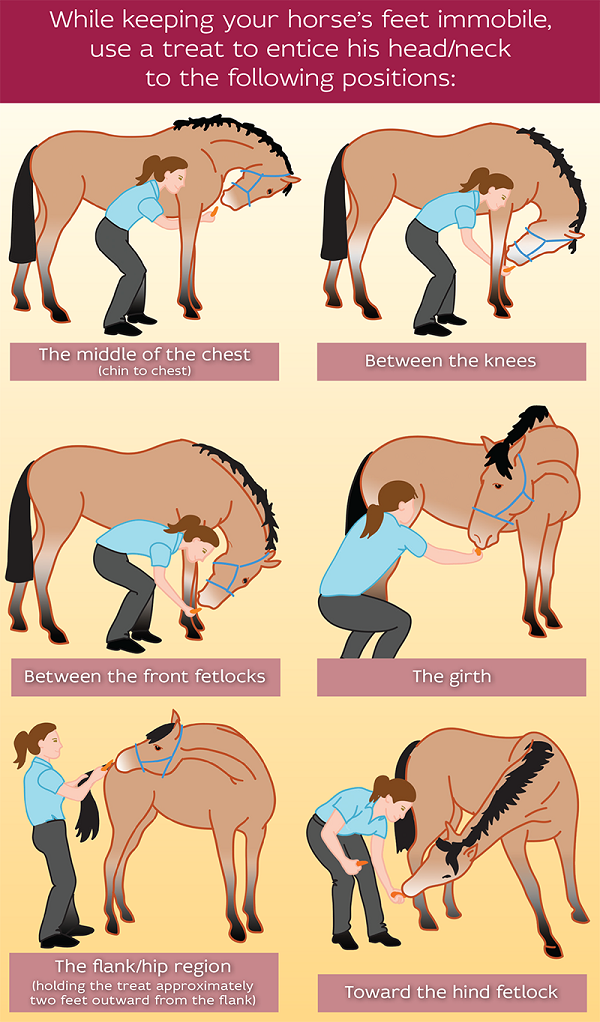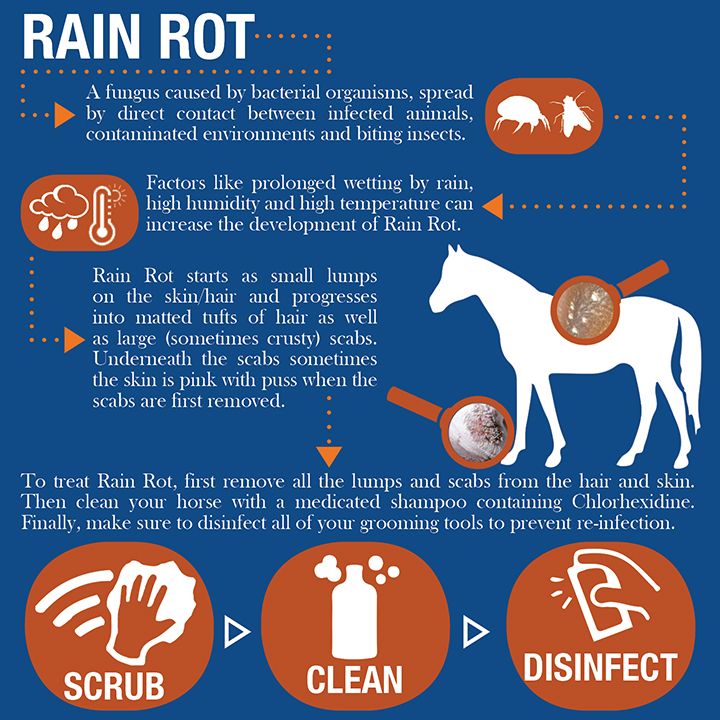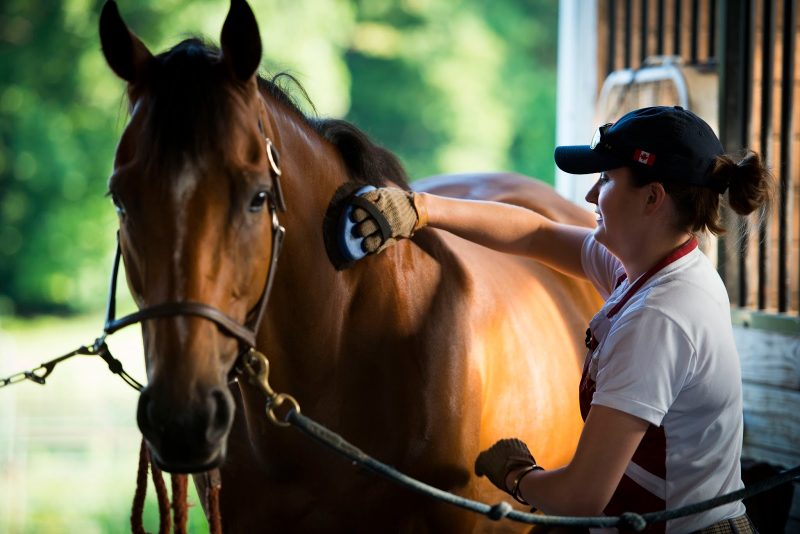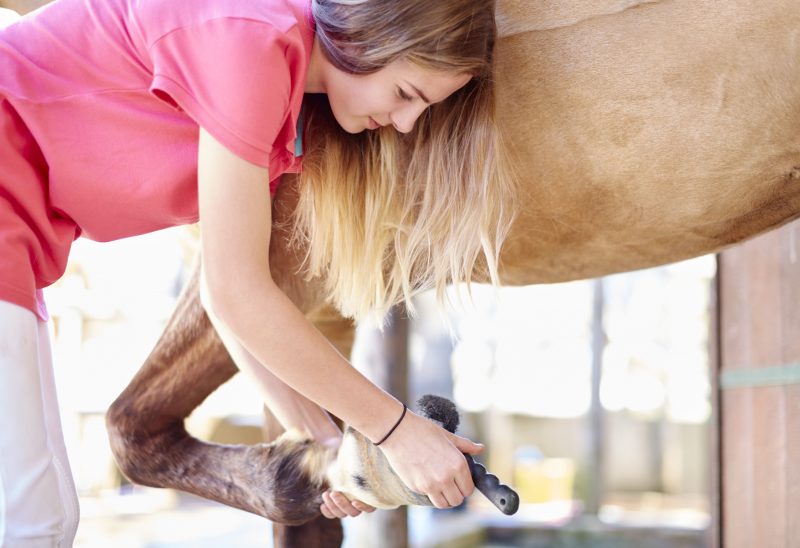Contents
- 1 Providing Proper Nutrition
- 2 Regular Exercise and Turnout
- 3 Grooming and Hygiene
- 4 Regular Veterinary Care
- 5 Maintaining a Safe and Comfortable Environment
- 6 Bonding and Socialization
- 7 Q&A:
- 7.0.1 Why is dental care important for horses?
- 7.0.2 How often should I have my horse’s teeth checked?
- 7.0.3 What are some signs that my horse may have dental problems?
- 7.0.4 What is involved in a dental examination for a horse?
- 7.0.5 Are there any preventive measures I can take to keep my horse’s teeth healthy?

Understanding the basics of horse care is essential for every horse owner. Whether you ride competitively or just for pleasure, keeping your horse happy and healthy should be a top priority. This article will provide you with the necessary knowledge and practices to ensure that your horse is well cared for and stays in top condition.
The first and perhaps most important aspect of horse care is providing clean and fresh water at all times. Horses can drink up to 10 gallons of water a day, so ensuring a constant supply is crucial. Lack of water can lead to dehydration and a whole host of diseases, so make sure that your horse always has access to a clean source of water.
Another key element of horse care is proper feeding. Horses should be fed several times a day and their diet must include a balanced mix of hay, grain, and supplementary feed. It’s important to monitor your horse’s weight and adjust their diet accordingly to avoid them becoming overweight or too thin. Regular veterinary checks are also necessary to ensure that your horse’s teeth are healthy and they are not suffering from any dental issues that may cause pain or discomfort.
The horse’s environment is also a crucial factor in their well-being. They should have access to a spacious and safe paddock or pasture where they can exercise, graze, and socialize with other horses. Stabled horses should be kept in clean and well-ventilated stalls that provide them with enough space to move around comfortably. Regular mucking out of the stall is necessary to maintain a clean and hygienic environment for your horse.
Monitoring your horse’s health is another vital aspect of care. Keep an eye out for any signs of illness or discomfort, such as lameness, unusual behavior, or changes in appetite. It’s important to have a plan in place for prompt veterinary care in case your horse falls ill or gets injured. Learning the basics of first aid is also a good idea, as it enables you to take immediate actions to alleviate pain or discomfort until professional help can arrive.
Lastly, never underestimate the power of learning from the pros. Working with an experienced instructor or a knowledgeable horse care professional can provide you with valuable insights and guidance on best practices for your horse’s care. They can teach you everything from the top riding techniques to the most effective management strategies, giving you the confidence and skills to take care of your horse in the best possible way.
In conclusion, horse care is not just about buying a horse and giving it a stall. It is a continuous learning process that requires time, commitment, and a genuine love for these magnificent animals. By understanding the basics of horse care and implementing the right practices, you can ensure that your horse is happy, healthy, and well-cared for.
Providing Proper Nutrition
When it comes to the well-being of your horse, one of the most important actions you can take is to provide proper nutrition. Before diving into the specific details, it’s important to find a trusted guide that can help you determine the right type and amount of food for your horse. Understanding your horse’s nutritional needs will be crucial in keeping them happy and healthy.
First, it’s essential to think about the basic needs of your horse. Horses are grazing animals by nature, so they require access to forage at all times. Whether it’s through pasture or hay, providing enough food for your horse to meet their foraging and nutritional needs is essential. Keep in mind that some horses may have specific dietary requirements, so consulting with a veterinarian or equine nutritionist is always a good idea.
Secondly, the way you manage your horse’s diet can greatly impact their overall health. Overfeeding can lead to weight gain and obesity, while underfeeding can result in malnutrition and weight loss. It’s also important to be aware of any existing medical conditions or limitations your horse may have. For example, horses prone to laminitis should be fed a low-sugar and low-starch diet to minimize the risk of the condition.
Additionally, considering the regular worming of your horse is crucial. Parasite control is a vital part of horse care, as parasites can cause discomfort, weight loss, and even serious health issues. Consult with your veterinarian for a worming schedule and proper deworming products.
Furthermore, providing your horse with mental and physical enrichment is an essential part of their overall well-being. Horses are social animals that benefit from outdoor living and companionship. If your horse is stabled, make sure they have regular turnout in paddocks or pastures to fulfill their natural behaviours and give them the freedom to move.
When it comes to housing, having suitable shelters is important for protecting your horse from extreme weather conditions. Ensure the shelters are well-maintained and fitted with proper bedding to provide comfort and protection. Alongside this, good stable management practices, such as regular cleaning and disinfection, are necessary to prevent the spread of diseases.
Lastly, don’t forget about your horse’s essential healthcare needs. Vaccinations and regular check-ups by a veterinarian are vital for keeping your horse healthy and preventing common diseases. Additionally, having your horse insured can provide peace of mind in case of any unexpected medical expenses or injuries.
By following these basic principles of providing proper nutrition and care for your horse, you can ensure their well-being and reduce the risk of any health issues. Remember, every horse is unique, so it’s important to tailor their diet and management practices to their individual needs.
Regular Exercise and Turnout

Regular exercise and turnout are essential for keeping your horse happy and healthy. Horses are natural athletes and need daily exercise to maintain their well-being. It’s not enough to just think about exercise when you’re buying a horse; you need to make sure you have the time, space, and facilities to provide them with regular exercise.
Exercise is important for your horse’s physical and mental health. It helps keep their muscles strong and their joints flexible. Regular exercise also helps prevent obesity and decreases the risk of laminitis, a painful and potentially life-threatening hoof condition. Plus, exercise provides mental stimulation and allows your horse to express their natural behaviors, such as running and foraging.
Turnout, or time spent outside of the stall, is also important for your horse’s overall well-being. Horses are social animals and need interaction with other horses to thrive. They also benefit from being able to move around freely in a safe, natural environment.
When it comes to exercise and turnout, there are a few things to keep in mind:
1. Monitoring
Monitor your horse’s exercise and turnout to make sure they are getting enough, but not too much. Some horses may need more exercise than others, and it’s important to be aware of any signs of injury or lameness.
2. Safe Spaces
Make sure your horse has access to safe and well-maintained turnout paddocks or pastures. Check for any hazards, such as holes or damaged fencing, that could cause injury to your horse.
3. Daily Maintenance
Aside from exercise and turnout, make sure your horse receives daily care and grooming. This includes regular hoof care, such as trimming and shoeing, as well as proper dental care and worming. Regular grooming helps keep your horse’s coat and skin healthy.
4. Enrichment
Provide your horse with environmental enrichment to prevent boredom and improve their mental well-being. This can include providing toys or puzzle feeders, as well as rotating their turnout areas to offer new stimulation.
5. Veterinary Care
Maintain a good relationship with a veterinarian who specializes in horse care. Regular check-ups and vaccinations are important for preventing illness and catching any potential health issues early on. Your veterinarian can also provide guidance on the best practices for exercise and turnout.
By understanding the importance of regular exercise and turnout, you can ensure that your horse is getting everything they need to stay happy and healthy. Remember to consider the individual needs of your horse and consult with professionals, such as a veterinarian or horse care specialist, for further advice and guidance.
Grooming and Hygiene
Grooming plays a vital role in the management and care of horses. It not only helps keep them looking good, but also ensures their overall health and well-being. Here are some key points to consider when it comes to grooming your horse:
The Essentials
Grooming your horse goes beyond just brushing their coat. It also involves checking their hooves, cleaning their ears, and maintaining their mane and tail. These tasks are essential to keep your horse looking and feeling their best.
Understanding Horse Behaviour
Horses have natural grooming behaviours, such as rolling in the dirt or rubbing against something. By learning about these behaviours, you can better understand your horse’s needs and provide appropriate care.
The Importance of Regular Grooming
Grooming plays a crucial role in maintaining your horse’s health. Regular grooming helps prevent skin conditions, removes dirt and debris, and allows for early detection of any injuries or abnormalities.
Hygiene Considerations
Horses should be kept in a clean and hygienic environment. Regular cleaning of the stall or pasture is necessary to prevent the buildup of manure and urine, which can lead to health issues and damage the horse’s hooves.
Horse Health
Grooming allows you to closely monitor your horse’s overall health. Early detection of any signs of illness or pain can help you take appropriate actions and seek veterinary care in a timely manner.
Grooming as a Learning Opportunity
Grooming your horse provides an excellent opportunity to learn more about their physical condition. You can learn about their teeth, coat condition, and overall body condition, which can further help you ensure their well-being.
Pros and Cons of Stabling
Stabling horses provides them with shelter and a safe space to live. However, it can also restrict their natural behaviours, such as grazing and socializing. If your horse is stabled, it is important to consider their needs and provide ample turnout time and social interaction.
Water and Feed
Providing your horse with clean and fresh water is essential for their health and well-being. Horses drink a significant amount of water each day, and it is crucial to ensure they have constant access to water. Additionally, proper feeding and nutrition are important for maintaining a healthy horse.
Considerations for Neighbouring Horses
If your horse is stabled or kept in close proximity to other horses, it is important to consider their interactions and behaviours. Some horses may not get along well, which can lead to aggression or stress. Understanding and managing these interactions is important for the overall well-being of all horses involved.
Disposal and Care of Horse Waste
Proper disposal of horse waste is essential for maintaining a clean and healthy environment. Manure management is important to prevent the spread of diseases and to protect water sources.
Learning from Professionals
Working with an experienced instructor or veterinarian can provide valuable guidance in learning proper grooming techniques and understanding your horse’s specific needs. These professionals can help you develop a comprehensive grooming routine and provide further insights into horse care.
Breeding Considerations
If you are a horse owner interested in breeding, grooming plays an important role in successful breeding. Proper care and grooming of both the mare and stallion before breeding can help ensure a successful outcome.
In summary, grooming and hygiene are essential aspects of horse care and ownership. By understanding the importance of grooming, learning proper techniques, and providing a safe and healthy environment for your horse, you can help them live a happy and healthy life.
Regular Veterinary Care
Regular veterinary care is essential for maintaining the health and well-being of your horse. A veterinarian can assess your horse’s overall health and provide necessary vaccinations, deworming, and dental care.
One important aspect of regular veterinary care is monitoring your horse’s behaviour and body condition. Changes in behaviour or weight loss can indicate underlying health issues. Regular check-ups also allow the veterinarian to identify and address any issues before they become more serious.
It is recommended to have a plan in place for veterinary care, including a schedule for vaccinations and check-ups. This can help ensure that your horse receives necessary care at appropriate times.
In addition to regular veterinary care, providing a healthy and natural environment for your horse is important. This includes appropriate housing and sheltering, as well as access to clean water and foraging opportunities.
When it comes to feeding your horse, it’s important to have a balanced diet that meets their nutritional needs. Consulting with a qualified equine nutritionist or instructor can help ensure that you are providing the best diet for your horse.
Regular grooming and bathing is another aspect of horse care that should not be overlooked. Keeping your horse’s coat clean and trimmed can help prevent discomfort and skin issues. It also gives you an opportunity to check for any injuries or abnormalities.
In order to avoid colic, a painful and potentially life-threatening condition, it is important to establish good stable management practices. This includes feeding small, frequent meals, providing plenty of fresh water, and avoiding sudden changes in diet.
Learning the basics of horse first aid is also important for every horse owner. Knowing how to properly clean a wound, apply bandages, and recognize signs of pain or distress can be invaluable in ensuring your horse’s well-being.
Regular exercise and turnout are important for a horse’s physical and mental well-being. Horses are naturally herd animals, so providing an opportunity for social interaction with other horses is also beneficial. If a horse is kept in a stall for long periods of time, they may develop behavioural issues or other health problems.
Lastly, proper manure disposal is essential for maintaining a clean and healthy environment for your horse. Muck should be regularly removed from stalls and pastures to prevent the spread of disease. Composting or proper disposal methods should be followed to avoid environmental damage.
In conclusion, regular veterinary care is vital for keeping your horse happy and healthy. By providing proper nutrition, exercise, and monitoring, you can help fulfill your horse’s natural needs and avoid unnecessary discomfort or pain.
Maintaining a Safe and Comfortable Environment
When it comes to taking care of your horse, one of the most important aspects is providing a safe and comfortable environment. This not only ensures their physical well-being but also promotes their mental and emotional health. Here are some important factors to consider:
1. Housing
The horse’s housing plays a crucial role in their overall well-being. Whether you choose to keep your horse in a stall or in a paddock, it should be clean, well-maintained, and properly designed to meet your horse’s needs. Stalls should be large enough for the horse to have freedom of movement and should be cleaned regularly to avoid the buildup of muck and disease.
2. Pasture and Paddock

Horses need access to pasture or paddocks for exercise and grazing. It is important to provide them with enough space to move around and socialize with other horses. Ensure that the pasture or paddock is securely fenced to prevent the horse from escaping and to keep neighboring animals out.
- Regularly inspect the pasture for harmful plants or objects that may injure the horse.
- If you do not have access to pasture, provide your horse with regular exercise in an enclosed area.
3. Food and Water

Proper nutrition and hydration are essential for a horse’s health. Horses should have access to fresh, clean water at all times. Check the water source regularly to ensure it is not contaminated or empty. Feed your horse high-quality hay or pasture, supplemented with appropriate grain if necessary. Consult with a veterinarian or equine nutritionist to develop a feeding plan specific to your horse’s needs.
4. Grooming and Healthcare

Grooming is not only a way to keep your horse looking clean and beautiful, but it also allows you to check for any wounds, skin irritations, or signs of illness. Regular grooming helps maintain the horse’s coat and promotes good circulation. Additionally, provide regular dental care, vaccinations, worming, and farrier services to ensure your horse’s health and prevent any potential issues.
5. Exercise and Enrichment
Horses are naturally active animals and need regular exercise to stay fit and healthy. Regular riding, lunging, or turnout time in a safe and enclosed area can help them burn off excess energy and maintain muscle tone. Additionally, providing environmental enrichment, such as toys or different objects to explore, can help prevent boredom and the development of behavioral issues.
6. Supervision and Emergency Planning
While horses are generally hardy animals, emergencies can happen, and it is crucial to be prepared. Ensure that your horse is supervised regularly, especially if they are in a stall or paddock. Have an emergency plan in place, which includes contact information for veterinarians, farriers, and nearby equine clinics. Familiarize yourself with common equine illnesses, signs of pain and illness, and basic first aid techniques to quickly respond to any situations that may arise.
In conclusion, providing a safe and comfortable environment for your horse is essential for their overall health and well-being. By following these tips and methods, you will not only improve your horse’s quality of life but also strengthen the bond between you and your equine companion.
Bonding and Socialization
Bonding with your horse is an essential part of horse ownership. It means building a strong emotional connection with your horse, which is important for their overall well-being. Socialization is also crucial for horses as they are herd animals by nature. Here are some tips and information about bonding and socialization.
Why is bonding important?
Bonding with your horse helps create trust and a positive relationship between you and your horse. It allows you to better understand their needs and behaviors, leading to better care and management. When a horse feels cared for and understood, they are more likely to be happy, healthy, and willing to work with you.
Socialization with other horses
Horses are social animals, and they require interaction with other horses to live a happy and healthy life. Keeping your horse boarded in a facility where there are other horses is important. This allows for daily socialization and prevents loneliness, distress, and possible health issues. Horses learn a lot from each other, and being around their own kind helps in their learning process.
Knowing about horse behaviors
Learning about horse behaviors is necessary for horse owners. It helps you understand why horses do certain things and how they communicate. For example, knowing how to interpret body language can help you identify when your horse is in pain or discomfort. This knowledge is essential for the overall health and well-being of your horse.
Exercise and mental stimulation
Horses need regular exercise and mental stimulation to stay happy and healthy. In addition to providing them with a safe and spacious pasture, it’s important to engage them in regular activities such as riding, groundwork, or playing. This helps to keep their minds sharp and their bodies fit.
Proper nutrition and care
Feeding your horse the right diet is crucial for their health and well-being. A horse’s diet should consist of high-quality hay or grass, supplemented with grains or concentrates if necessary. Make sure to provide fresh water at all times, as horses can drink up to 10 gallons of water per day. Regular grooming, keeping their hooves trimmed, and providing necessary veterinary care are also important aspects of horse care.
Emergency preparedness
In order to ensure the safety of your horse, it’s important to be prepared for any emergencies that may arise. Have a first aid kit handy and know how to handle common horse injuries. Keep important contact information for your veterinarian and the nearest equine hospital readily available. This will help you act quickly and effectively in case of an injury or illness.
In conclusion, bonding and socialization are essential for the overall well-being of your horse. Taking the time to understand and meet their needs will not only help strengthen your relationship but also ensure that your horse lives a happy, healthy, and fulfilling life.
| Key Points |
|---|
| Bonding helps create trust and a positive relationship with your horse |
| Socialization with other horses is important for their emotional and mental well-being |
| Learning about horse behaviors is essential for effective horse management |
| Regular exercise and mental stimulation are necessary for their physical and mental health |
| Proper nutrition and care, including a balanced diet and veterinary care, are important |
| Emergency preparedness and knowledge about common horse injuries are necessary for their safety |
Q&A:
Why is dental care important for horses?
Dental care is important for horses because it helps prevent dental problems such as malocclusions, sharp points, or other issues that can cause discomfort and difficulty in eating. Regular dental care also ensures that horses can properly chew their food, which improves digestion.
How often should I have my horse’s teeth checked?
Horse’s teeth should be checked by a veterinarian or equine dentist at least once a year. In some cases, horses with dental problems may need more frequent check-ups or dental work.
What are some signs that my horse may have dental problems?
Signs that your horse may have dental problems include difficulty eating or dropping food, weight loss, bad breath, excessive salivation, or behavior changes such as head tossing or resisting the bit.
What is involved in a dental examination for a horse?
A dental examination for a horse involves the veterinarian or equine dentist using a specialized dental instrument to examine the teeth and remove any sharp points or other dental issues. Sedation may be necessary to ensure the horse’s cooperation.
Are there any preventive measures I can take to keep my horse’s teeth healthy?
Yes, there are several preventive measures you can take to keep your horse’s teeth healthy. Regular dental check-ups and floating can help prevent dental problems. Feeding your horse a diet that includes plenty of roughage, such as hay, can also promote dental health by stimulating natural chewing and grinding.
